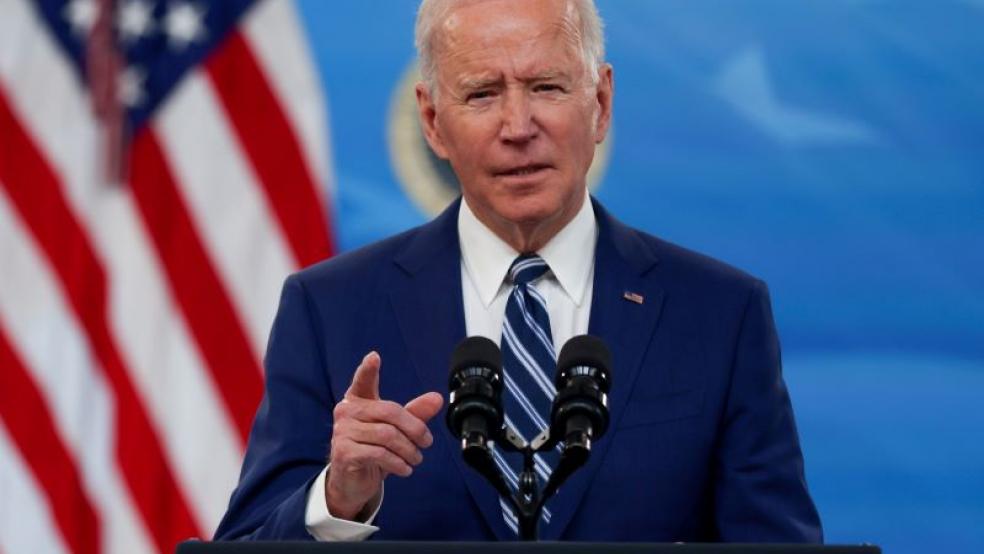President Biden is set to unveil his first comprehensive budget blueprint on May 28, providing more insight into the White House’s priorities, proposed program changes and how or whether the administration wants to pay for the spending increases it has proposed beyond the roughly $4 trillion in new infrastructure and social welfare plans.
What won’t be in the budget, according to The Washington Post: key Biden campaign promises for reforming the health care system, including a public option for health insurance and a plan to lower prescription drug costs.
“The White House jettisoned months of planning from agency staff as their initial plan could fuel criticisms that the administration is pushing new spending programs too aggressively,” the Post’s Jeff Stein and Tyler Pager report, citing four people briefed on the issue. “Other ambitious Biden campaign pledges — from raising the estate tax to forgiving significant amounts of student debt — are also expected to be left out of the new budget plan, the people said.”
The White House budget office confirmed to the Post that the administration is focused on advancing the major proposals it has already unveiled. “The President’s budget will focus on advancing the historic legislative agenda he’s already put forward for this year," said Rob Friedlander, spokesman for the White House budget office. "The budget won’t propose other new initiatives but will put together the full picture of how these proposals would advance economic growth and shared prosperity while also putting our country on a sound fiscal course.”
The Biden administration last month released an outline of its discretionary spending request for 2022 and said that its forthcoming full budget blueprint “will present a unified, comprehensive plan to address the overlapping crises we face in a fiscally and economically responsible way.”
Biden is proposing $769 billion in non-defense spending and $753 billion for all defense programs.
The White House does not yet have a permanent budget director after Biden’s nominee for the position, Neera Tanden, withdrew in the face of opposition from senators. Shalanda Young was confirmed as deputy director in March and has been serving as acting director. Tanden joined the White House this week as a senior adviser.
Why it matters: Biden’s full fiscal year 2022 budget request — reportedly the latest by any administration in at least a century — will likely be just the beginning of months of budget-related battles between Democrats and Republicans. Top Senate Republicans this week introduced an amendment requiring parity in defense and non-defense spending increases, while Biden has proposed a 16% increase in non-defense spending and a 1.7% increase for defense. But Biden’s decision to leave out health care pledges and other proposals could also widen rifts among Democrats, some of whom have pressed for action on health care.





